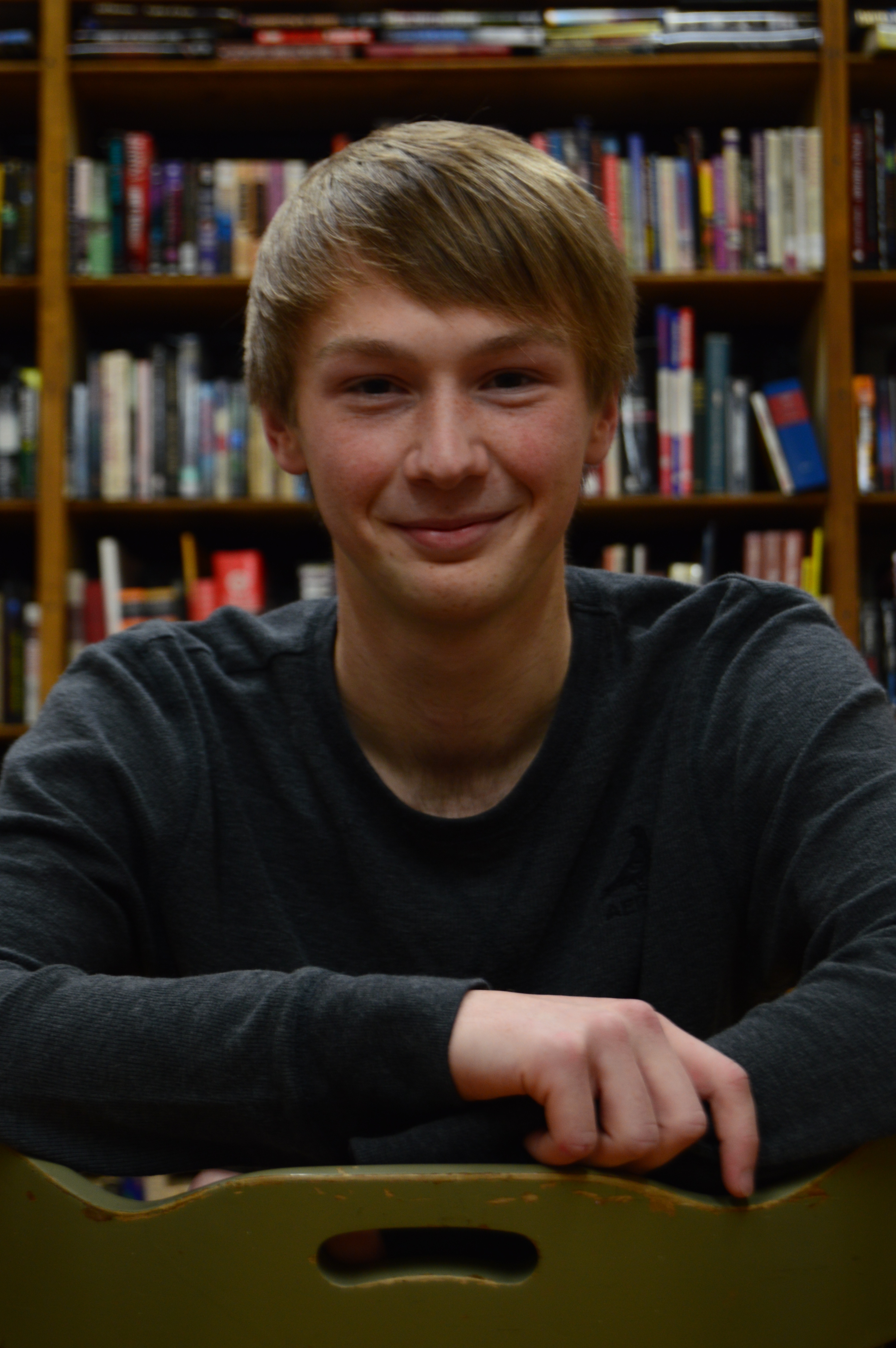Grant Simmons is a star on stage, as well as on the slopes. He is an upright bassist in the Stevens Orchestra, is on the Alpine Ski Team, and is a part of the Institute of Electrical and Electronics Engineers (IEEE). Grant is a second-year Computer Engineering major who calls La Crosse, Wisconsin, home — also home of the best cheese, haha. In addition to playing bass, Grant also enjoys kayaking, mountain biking, and playing table tennis.
In coming to Stevens, Grant learned to value the vulnerability that comes with going to a smaller school where one is not just another face in a lecture hall. Grant recounts talking to his friends back home and hearing about 200+ person lectures. “Small classes force me to be constantly attentive, and I don’t think that I would be able to thrive in a place where my professors were not able to call me out by name.” He adds, “Being personally recognized by an instructor when I reach out is an aspect of education that I didn’t fully appreciate until I came here.”
At the tender age of three, Grant started playing piano. Grant recalls that there was a Simmons family rule that “everyone must take piano lessons for at least one year.” After learning piano, he went on to play string and electric bass, tuba, and ukulele while dabbling in guitar, drums, nose flute, and sopranino recorder. Grant eventually focused his efforts onto the string bass. The string bass has proven to be a versatile instrument, allowing him to play in a variety of musical groups, including symphony orchestras, chamber ensembles, jazz bands, wind symphonies, choirs, church bands, pit bands, and folk bands, and also perform as a soloist.
Having grown up in a music-centric household, it is not surprising that Grant has decided to continue playing his upright bass at Stevens. Grant says, “I continue to play music in college because I don’t know a life without it. For as long as I remember, it’s been there for me.” He explains, “It’s been fun, rewarding, frustrating, sad, and everything in between, but it has always been there. I still play today because I feel like I have a responsibility to give back to music what it has given, and continues to give, to me. If I were to stop playing today, it would be like ending a 19-year relationship out of nowhere. I have no reason to stop, but dozens of reasons to keep going, so why would I stop?”
One of Grant’s biggest musical inspirations is Rinat Ibragimov, a bass teacher at the Guildhall School of Music and Drama who played double bass in the London Symphony Orchestra. After years of playing professionally, a severe stroke ended his career as a professional bassist. Grant remembers when he heard the sad news: “I had grown as a bassist listening to, and later studying, his renditions of the Bottesini Bass Concerto No. 2 and the Vanhal Bass Concerto. To watch his performances after the incident served as a grim reminder to appreciate every opportunity I have to practice and improve, because one day those opportunities might be gone.”
As a Computer Engineering major, Grant finds that music helps him balance his academic pursuits by providing a temporary “out.” Grant explains, “Stressed? Practice it out with an aggressive bass part. Paper due tomorrow? Stall my progress by practicing until I feel guilty enough to go finish the paper.” He adds that these strategies, though not for everyone, helped get him through his formative semesters at Stevens.
Grant has an eclectic taste in music. Some of his favorite classical pieces include Tchaikovsky’s “Piano Concerto No. 1 in Bb Minor,” Robert Schumann’s “Piano Concerto in A Minor,” and Gustav Mahler’s “Symphony No. 4.” Grant shares that Tchaikovsky’s first piano concerto is a piece that he finds myself returning to on a regular basis because of its catchy tune, epic finale, and his personal experience playing it. He says, “Before coming to Stevens, I was fortunate enough to play in an orchestra accompanying pianist Ilya Yakushev in his performance of the piece [Tchaikovsky’s first piano concerto]. Experiencing the powerful cadenzas and delicate harmonies just feet from the piano is one of my most cherished memories.” He adds that his favorite composers include Gustav Mahler, Dmitri Shostakovich, and Robert Schumann, as well as more modern tunes by Snarky Puppy, Thomas Enhco, Lamp, Chon, Yotam Perel, and Tennyson.
For a musician, to answer the question, “What does music mean to you?” may be like asking a philosopher, “What is the meaning of life?” In short, it is a loaded question with no quick, one-word answer. Grant gave a thoughtful response that deepened what music even is and why we as humans find it so meaningful and emotive. Grant admits, “I’m still struggling to understand how varying sounds or how changing the vibration of a piece of wound up steel can affect a person’s mood. I love creating those sounds and I love hearing them, [but] I have a hard time understanding why they change us on a personal level. Somewhere along our evolutionary timeline, we adopted an appreciation for audible harmony, and it didn’t just change my emotions — it changed my life.”

Be First to Comment